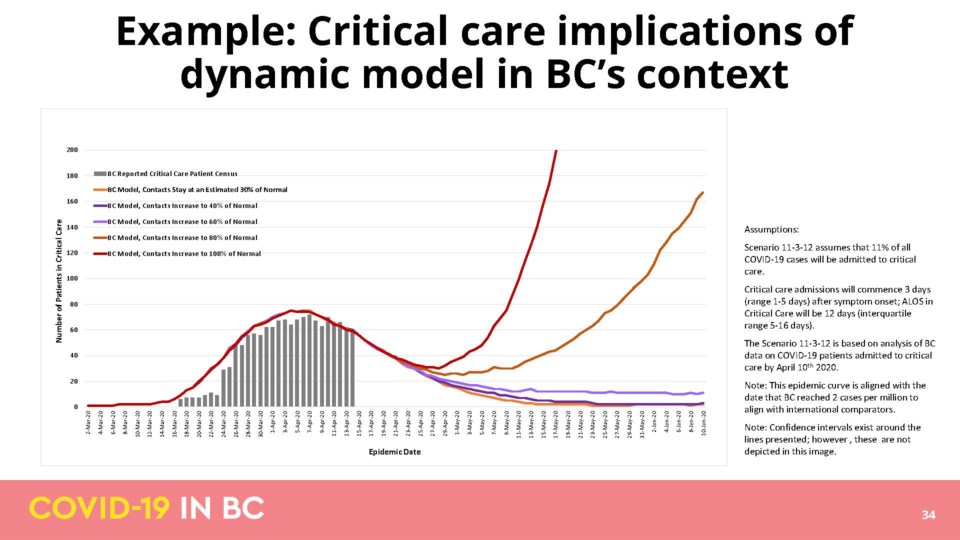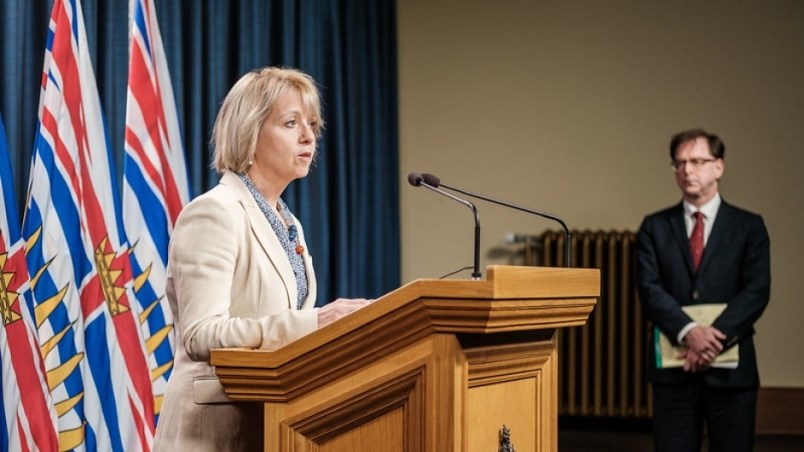B.C. may consider starting to relax some restrictions put in to combat COVID-19, starting next month.
But the province’s chief medical health officer has warned the lifting of those measures will be partial and gradual – and life in B.C. won’t go back to normal anytime soon.
“I will caution it is not going to be the same. It is modifications to what we’re seeing right now,” said Dr. Bonnie Henry on Friday.
Henry said Friday the lifting of pandemic measures might start with the resumption of some cancelled elective surgeries.
Students may also be able to start going back to school – but that could involve only partial school days or partial classes at a time. Or it might include some students continuing to learn remotely while others go back to the classroom.
She also spoke of employees continuing to work from home, combined with on-site social distancing.
Government will be looking in the next few weeks at "what does it look like to have some business open again, to have our health system open up again," said Henry. "We need to find that balance. I can't tell you exactly what it looks like."
But Henry warned more general physical distancing measures that have largely been responsible for BC “flattening the curve” of the epidemic won’t be lifted anytime soon, and will likely be in place in some form until the next flu season strikes in the fall.
“It’s not going to be what it was before,” she said.
“This is not the end for us. It’s not even the beginning of the end,” she said, quoting a famous wartime speech from British Prime Minister Winston Churchill. “It is perhaps the end of the beginning.”

Henry and Health Minister Adrian Dix said the key will be to find the “sweet spot” which allows for some opening up of regular life without causing numbers of COVID-19 to spike again.
“This is not going to be just weeks, but months and conceivably years,” said Dix. “We must find a healthy way forward as Dr. Henry has said ‘a new normal’ that allows us to resume some of our activities.”
Dix said some people have advocated lifting all restrictions while others have suggested remaining largely in lockdown.
“Together what we have to do is use our strengths to find a middle road between those extremes,” he said.
Henry said that while travel restrictions within the province may be eased, she warned it’s unlikely that restrictions on international travel will lifted soon, in order to prevent coronavirus cases being imported into BC from other places around the world.
Henry made those comments as she and Health Minister Adrian Dix presented new modeling that has tracked B.C.’s epidemic so far and also projected what might happen in the future under different scenarios.
According to that modeling, measures put in place to increase social distance – which has involved shutting schools and closing down vast swaths of the economy – have been successful in flattening the growth of the epidemic in B.C.
The models show restrictions in B.C. have been more successful in limiting the spread of COVID-19 than they have been in many other parts of Canada and the rest of the world.
That’s partly because BC put in its restrictions at an earlier point in the development of its epidemic.
But the models also warn that if restrictions are rapidly lifted, the number of cases can be expected to climb rapidly again, warned Henry.
In contrast, if measures are lifted only partially and gradually, the epidemic curve is likely to remain much flatter.
Dix said this is a unprecedented situation, for which there are no road maps and “there are significant human costs if we get it wrong.”
Henry and Dix said government officials are now working on options for what may be possible for lifting some restrictions heading into the summer. They are expecting to present those to the public at the beginning of May.



